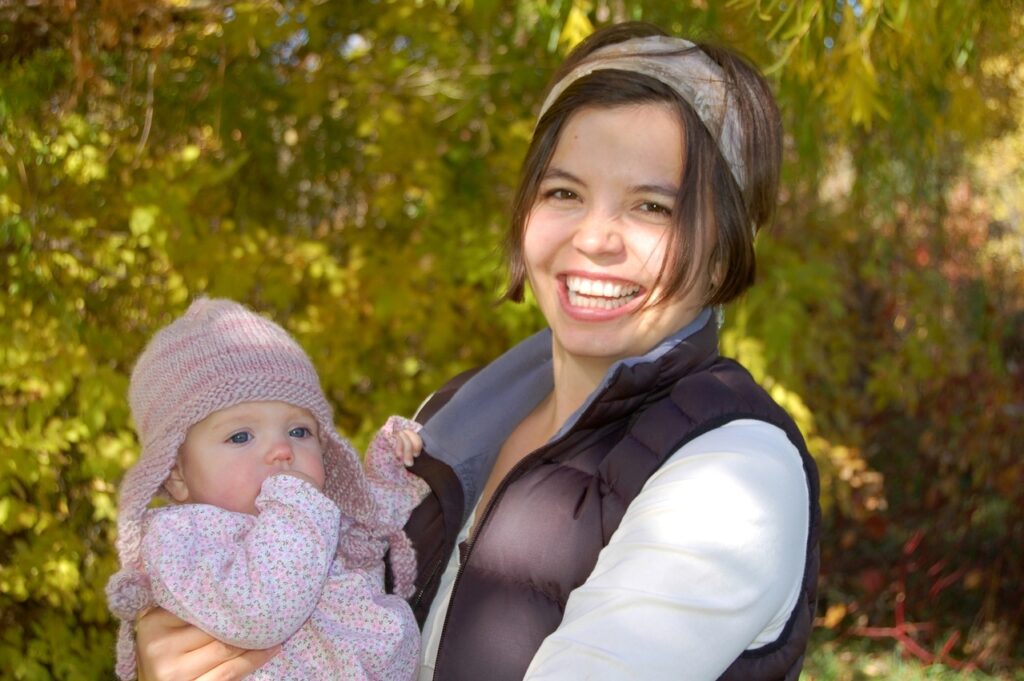Image via Benjamin Earwicker/freeimages.com
By Laura Cipullo, RD, CDE, CEDRD
Mindfulness Monday: How to Instill Healthy Eating and Mindfulness in Kids
In August 2013, I released Healthy Habits, a guide for parents and educators. The aim of the workbook — an eight-lesson plan — is to instill in children positive ways of approaching food and exercise. Lessons have a hands-on component, with handouts and homework. The book aims to also prevent eating disorders, with a philosophy that all bodies and all foods are acceptable.
One of the most helpful and convenient sections of the book is the What Not to Say section.
I know that as a parent or teacher you want to say the right things to children, but because so many of us have been raised in a body-negative culture, we sometimes say things that have the potential to cause harm and set children up for an unhealthy relationship with food.
And we don’t have to just think about what we say to children. Children also model their behavior on how we behave, and on how we talk about our own bodies.
Here are some common phrases we might be saying to the children in our lives and preferred alternatives.
Example:
- Don’t say: “Oh honey … you could stand to lose a few pounds!”
- Do say: “Are you eating for fuel? Or are you just bored or maybe even sad?”
Pointing out that you think your child could lose weight may seem like a positive thing to do, but can be deeply damaging, encouraging a lifetime of bad self-image and/or disordered eating. The better way is to get her to examine why she is eating and discussing what are healthy reasons to eat — this is an important lesson to instill mindfulness. Suggest alternatives to relieve boredom other than food — fun activities you know she likes to do.
Another example:
- Don’t say: “You need to eat your veggies because they’re good for you.”
- Do say: “Let’s try to eat veggies every day to get the necessary vitamins our bodies and minds need. Maybe we can use a star chart to help you try new foods like veggies.”
Saying “you need to eat your veggies because they’re good for you” is too vague. Be clear about why your child would want to eat their vegetables. Phrase it as a choice they are making. Emphasize exactly how it will help their bodies and minds (while being age-appropriate, of course). Adding a star chart gives them a goal to shoot for, without making the reward a food-based one. “Try new foods” makes it sound positive. “Trying” things emphasizes adventure, a new experience a child should be excited about. “You need to” feels more like an obligation or a punishment.
Here’s something you might say about yourself:
“My thighs are so fat!”
You might think this is a harmless thing to say in front of a child, but it has repercussions. A child can notice that mommy doesn’t like her thighs and the next thing you know, she is wondering whether her thighs are “too fat” as well. Children want to be like their parents, so if mommy is in search of the perfect body, and feeling discouraged with the one she has, well, don’t be surprised if your daughter or son starts complaining about his or her body, and wishing she or he looked “better.”
Here’s another way to talk about your body in front of your child:
“I may not be perfect, but that’s okay. I love myself and I love you!”
Healthy Habits has a number of sample scenarios like the ones above. I encourage you to buy the book for the child or children in your life. You will be giving them the gift of a healthy relationship with food, and a positive self-image, two gifts that are ultimately priceless.








